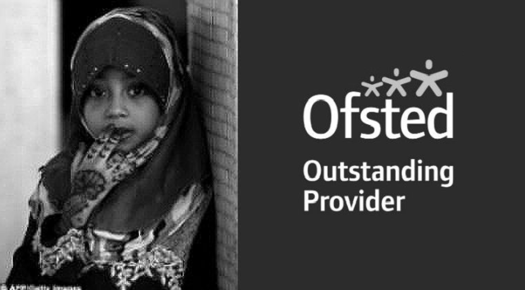
Great Britain: In order to protect and promote equality for children, the Office for Standards in Education, Children’s Services and Skills (OFSTED) recommended inspectors to question Muslim primary school girls if they are wearing a hijab because it “could be interpreted as sexualisation of young girls,” according to Amanda Spielman, the head of OFSTED. Both the Department for Education and OFSTED have required schools to teach and reflect fundamental British values, especially after the “Trojan horse” affair that erupted in Birmingham in 2014, which provoked controversy over fears of Islamist influence in state schools.
Now, this move has been condemned as “kneejerk, discriminatory and institutionally racist” by more than 1,000 teachers, academics and faith leaders.
Most Islamic teaching requires headdress for girls only at the onset of puberty and wearing it “could be interpreted as sexualisation” of girls as young as four or five. But the move has been criticised as a “dangerous” decision that risked “reinforcing an anti-Muslim political culture… in which anti-Muslim racism has been institutionalised in schools and across the public sector”.
As many as 1,136 teachers, academics and faith leaders signed an open letter to OFSTED which reads: “It is a kneejerk, discriminatory and institutionally racist response that will violate civil liberties and create a climate of fear and mistrust in schools, and must be retracted immediately.”
The letter, written by Nadine El-Enany, a senior law lecturer at Birkbeck Law School, University of London, Waqas Tufail, a senior lecturer in criminology at Leeds Beckett University, and Shereen Fernandez, a PhD candidate at Queen Mary University of London, said: “We, the undersigned, ask that OFSTED immediately retract its instruction to inspectors to question primary school children wearing the hijab. We find the decision to single out Muslim children for questioning unacceptable, and insist that no school children be targeted for action on the basis of their race, religion or background.”
“Further, the OFSTED decision reduces the hijab to a symbol of sexualisation and ignores other interpretations ranging from a display of faith to a symbol of empowerment and resistance. Construing women and children who wear the hijab as being either sexualised or repressed is both reductive and racist in its reproduction of colonial and Orientalist tropes about them.”
Photo Credits: WPP/Getty, Wikimedia
